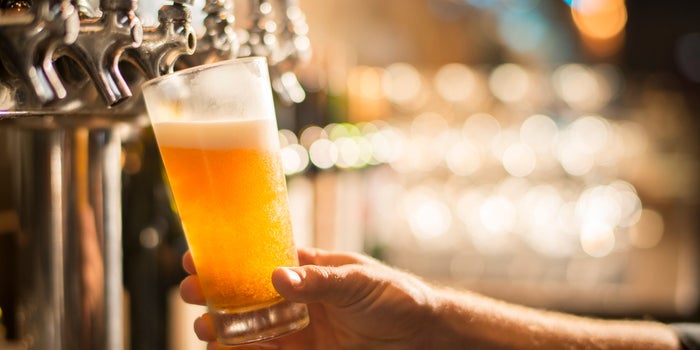Is Craft Cannabis the Next Craft Beer?

We've seen the popularity of craft beer rise across the nation, and according to IBISWorld, "Craft beer industry revenue has increased at an annualized rate of 4.4 percent to $7.6 billion over the five years to 2020, including estimated growth of 2.1 percent in 2020 alone." There always seems to be a unique appeal to any product we deem to be "craft." As many of us predicted, we're starting to see this trend become more evident in the cannabis space.
I sat down with Taig Rehmel, the Co-Founder and Lead Grower of Asheville Craft Cannabis, to dig deeper into the craft cannabis scene. Taig has over two decades of experience in large-scale cannabis research and cultivation, which gives him a unique vantage point into the essence of craft cannabis, sustainable architecture, and regenerative agriculture.
Here's what Taig had to say about craft cannabis being the next potential craze in cannabis, how it relates to craft beer, the difference between craft and average flower, and the future of craft cannabis.
What exactly is craft cannabis?
Taig Rehmel: A critical component of craft cannabis is that it’s consciously cultivated. Unlike “super-market” cannabis, craft is not just consumed, it’s experienced. Craft cannabis is handmade, each step of the process is carried out by artisans, rather than mass-produced. On the micro-level of all of this, there needs to be a relationship between the cultivator and the plants.
What’s the difference between an average quality flower and something that a connoisseur would consider to be craft cannabis?
Rehmel: Craft cannabis is adventurous, artistic, and pushes the envelope of new tastes and new experiences. Craft cannabis flower are grown with more attention to detail, have gone through a longer, more gentle, curing process (much like aged wine), and had much more trim. All of this extra attention to detail adds more complex and pronounced flavors and aromas. Last, but certainly not least, where the flower is from, how it’s made, and what values they have also play a big role in setting apart average cannabis from top-shelf, craft cannabis.
How does craft cannabis compare to craft beer?
Rehmel: Directly. They both place a huge emphasis on “hand-made.” They both promote craft values and sustainable methods. Just like craft beer, craft cannabis focuses on highlighting the story of how craft products are made with attention to detail. Just like with craft beer, craft cannabis means playing with new ingredients, focusing on sustainability, and uplifting the community at the same time. Experimenting adventurously with new ingredients is something that both craft beer and craft cannabis are known for, and ultimately, both rely heavily on loyal consumer experiences to develop new products.
A lot of folks enjoy complementing craft beer with specific foods. Does the same hold true for craft cannabis?
Rehmel: Absolutely. Craft cannabis cultivars all compliment tastes depending on their genetics and how they are created. In the same way that food and wine have been paired forever, pairing food and cannabis is becoming a sought-after experience. Lastly, cannabis has a huge variety of tastes to explore, not to mention it gives you the munchies.
How do you foresee the future of craft cannabis developing as more states jump on the legalization train?
Taig Rehmel: I believe that legalization will create more demand, which will spark new business. Large companies will buy out smaller locations, eventually creating the "WalMart of weed." These mega-companies will flood the market with average products, much like chain-stores today. Fortunately for craft cultivators, the influx of sub-par products creates a demand for superior, craft-made products. A large percentage of consumers seek out superior products that have been made with precision, care, and attention to detail, just like in the existing craft beer industry. The future of craft is bright thanks to humanity's constant search for individuality, and something better.
420 Intel is Your Source for Marijuana News
420 Intel Canada is your leading news source for the Canadian cannabis industry. Get the latest updates on Canadian cannabis stocks and developments on how Canada continues to be a major player in the worldwide recreational and medical cannabis industry.
420 Intel Canada is the Canadian Industry news outlet that will keep you updated on how these Canadian developments in recreational and medical marijuana will impact the country and the world. Our commitment is to bring you the most important cannabis news stories from across Canada every day of the week.
Marijuana industry news is a constant endeavor with new developments each day. For marijuana news across the True North, 420 Intel Canada promises to bring you quality, Canadian, cannabis industry news.
You can get 420 Intel news delivered directly to your inbox by signing up for our daily marijuana news, ensuring you’re always kept up to date on the ever-changing cannabis industry. To stay even better informed about marijuana legalization news follow us on Twitter, Facebook and LinkedIn.




